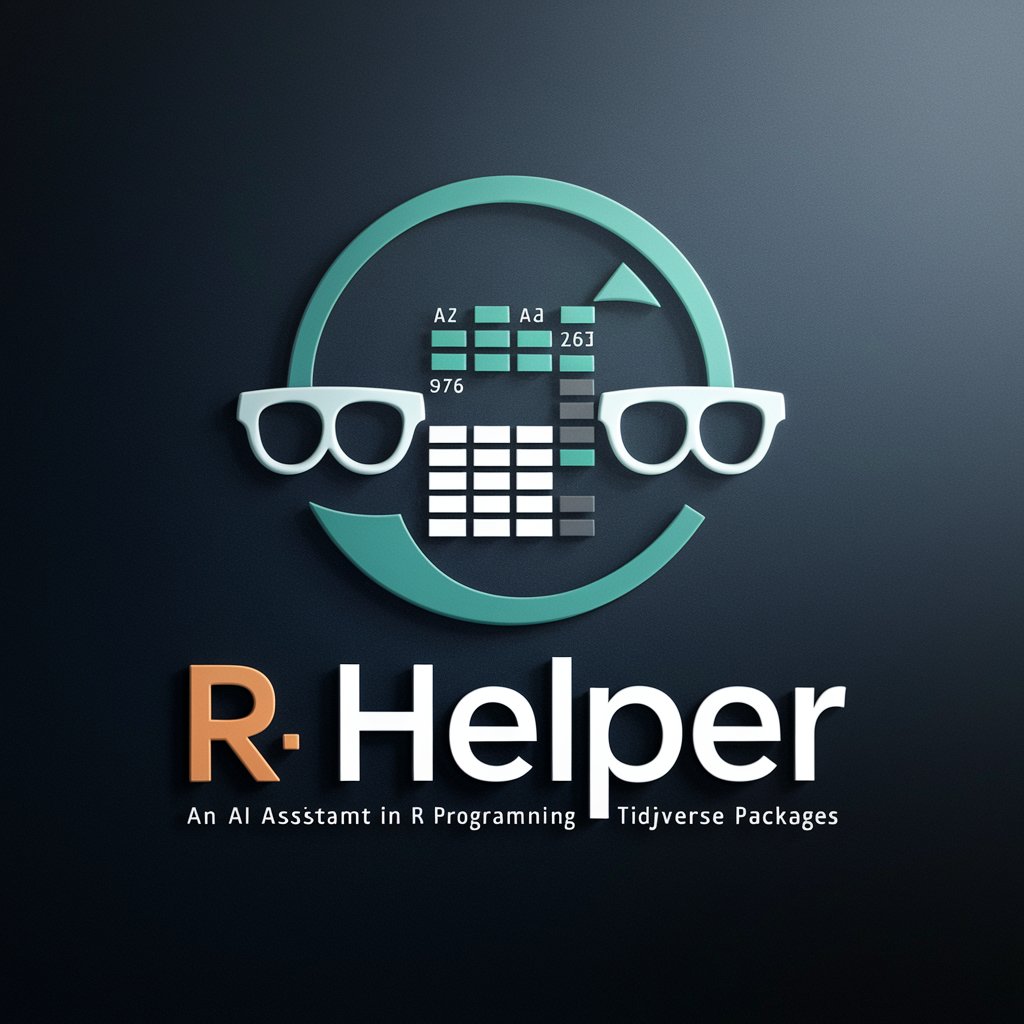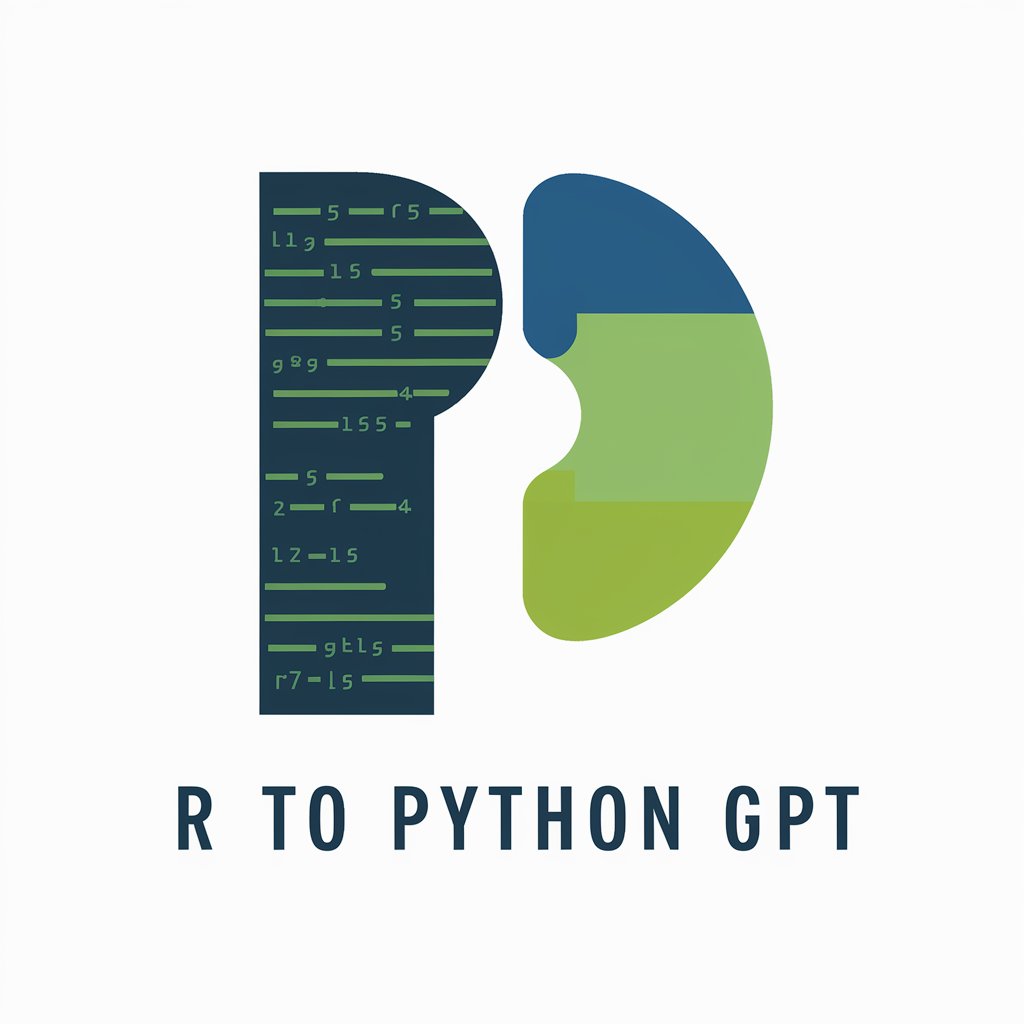
Stata to R Code Translator - Stata to R Translation

Welcome! Need help translating Stata code to R? I'm here to assist.
Seamlessly convert Stata to R with AI
Translate the following Stata code into R code:
How do I convert this Stata syntax to R:
What is the R equivalent for this Stata command:
Help me rewrite this Stata script in R:
Get Embed Code
Introduction to Stata to R Code Translator
The Stata to R Code Translator is a specialized tool designed to facilitate the conversion of statistical analysis code from Stata, a widely used statistical software, to R, an open-source programming language and software environment for statistical computing and graphics. This tool understands the syntax, functions, and data manipulation methods of both languages, ensuring accurate and efficient translations. Its design purpose is to help users migrate their statistical analysis workflows from Stata to R, leveraging R's extensive package ecosystem, community support, and open-source nature. An illustrative example is converting Stata code for linear regression (`regress y x1 x2`) to R code using the `lm()` function (`lm(y ~ x1 + x2, data = mydata)`), demonstrating the tool's ability to map similar statistical modeling commands across these platforms. Powered by ChatGPT-4o。

Main Functions of Stata to R Code Translator
Syntax Translation
Example
Stata code: `summarize income`, R translation: `summary(mydata$income)`
Scenario
When a user needs to perform descriptive statistics on a dataset, they can convert the Stata command for summarizing a variable to the R equivalent, utilizing R's `summary()` function for a similar purpose.
Data Manipulation Conversion
Example
Stata code: `replace age = age + 1 if age >= 18`, R translation: `mydata$age[mydata$age >= 18] <- mydata$age[mydata$age >= 18] + 1`
Scenario
This function is applied when users need to adjust or clean their data based on specific conditions, showcasing how conditional statements and variable manipulations are converted from Stata to R syntax.
Statistical Model Mapping
Example
Stata code: `logit response treatment`, R translation: `glm(response ~ treatment, family = binomial(link = "logit"), data = mydata)`
Scenario
In scenarios where users are transitioning complex statistical models from Stata to R, this function guides them in using R's generalized linear model function `glm()` to replicate Stata's logistic regression analysis.
Ideal Users of Stata to R Code Translator Services
Academic Researchers
This group includes scholars and students in fields like economics, psychology, and public health, who often rely on statistical analysis for their research. They benefit from converting Stata to R code to access R's advanced statistical techniques and rich visualization libraries for their academic projects.
Data Analysts in Non-Profit Organizations
Data analysts working in non-profits may have limited budgets for software licenses. Transitioning from Stata to R can reduce costs and enhance their data analysis capabilities. The translator helps them adapt their existing Stata scripts to R, ensuring a smooth transition to an open-source environment.
Government Statisticians
Government agencies often conduct extensive data analysis for policy development and evaluation. Statisticians in these agencies can use the translator to shift towards R for its cost-effectiveness and flexibility, thereby enhancing their ability to work with large datasets and complex statistical models.

How to Use Stata to R Code Translator
Start Your Free Trial
Access the Stata to R Code Translator for a free trial by visiting the designated website, without the need for a login or a ChatGPT Plus subscription.
Prepare Your Stata Code
Ensure your Stata code is ready for translation. This includes checking for any syntax errors, making sure the code is complete, and understanding what each part of your code is intended to do.
Input Your Stata Code
Enter your Stata code into the provided field on the Stata to R Code Translator tool. This input field is typically clearly marked and easy to locate on the tool's interface.
Translate and Review
Submit your Stata code for translation. Once the process is complete, review the translated R code. The tool will often provide comments or suggestions to help clarify the translation or offer alternative approaches.
Optimize and Integrate
After reviewing the translated R code, you may need to make adjustments for optimization or to integrate it with existing R scripts. This might involve modifying function arguments or changing library references to better suit your project's requirements.
Try other advanced and practical GPTs
Python Tutor for R Users
Bridging R Expertise to Python Proficiency

Study Guide Buddy
Empowering study with AI-driven insights

Editor Assistant
Empowering your words with AI

Swedish Text Tutor
Elevate Your Swedish with AI-Powered Editing

Youth Football Master 青训大师
Empowering Coaches, Developing Young Talent

大相撲有識者GPT
Unlocking Sumo Secrets with AI

R Helper
AI-powered R programming assistant

Quantitative Social Science Sage
Empowering Research with AI-driven Social Science

Rule Identifier
AI-Powered Compliance at Your Fingertips

Galactic Atlas
Discover the cosmos with AI-powered insights

Intergalactic Traveler
Voyage through the cosmos with AI

iFixit GPT
Empower your repair skills with AI

Frequently Asked Questions about Stata to R Code Translator
What is Stata to R Code Translator?
Stata to R Code Translator is a tool designed to convert statistical analysis code written in Stata into the R programming language. It helps users migrate their data analysis workflows from Stata to R by providing equivalent R code for Stata syntax.
Can it translate all Stata functions to R?
While the translator aims to cover a wide range of Stata functions, some functions may not have direct equivalents in R due to differences in the two languages' libraries and functionalities. In such cases, the tool provides the closest possible translation or suggests alternative approaches.
Is prior knowledge of R required to use this tool?
Basic knowledge of R is beneficial but not required. The translator provides comments and suggestions to help users understand the translated code. However, a fundamental understanding of R can significantly enhance the user's ability to optimize and integrate the translated code into their projects.
How accurate is the translation?
The accuracy of the translation depends on the complexity of the original Stata code and the specific functions used. The tool is designed to provide highly accurate translations for common Stata functions and syntax, but users are encouraged to review and test the translated code.
Can I translate R code back to Stata using this tool?
The primary function of the tool is to translate Stata code to R. While it does not support reverse translation from R to Stata, focusing on converting Stata code allows the tool to specialize and provide highly effective translations in its designated direction.




